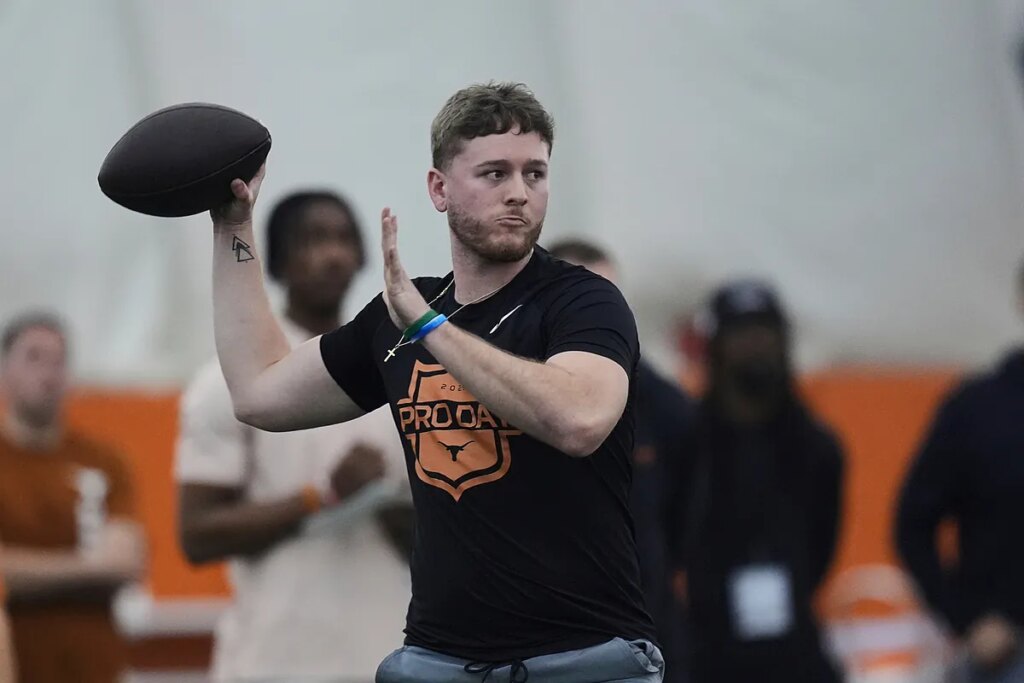Quinn Ewers‘ college career at Texas ended with a surprising financial revelation. According to Longhorns head coach Steve Sarkisian, the star quarterback didn’t receive any payments from the University of Texas or its NIL collective during his time in Austin.
Instead, Ewers made all of his money through legitimate Name, Image, and Likeness (NIL) endorsements, without relying on a collective-backed monthly stipend.
This information came to light after Ewers‘ NFL Draft slide – a tumble that ultimately cost him millions.
Ewers, once the top-ranked quarterback in the 2021 recruiting class, began his college journey at Ohio State before transferring home to Texas.
Although he still had eligibility remaining due to his redshirt season in Columbus, Ewers decided to forgo a fifth year and enter the 2024 NFL Draft, even with top recruit Arch Manning waiting behind him.
Staying one more year could have meant a huge payday
Had Ewers decided to transfer for one more college season, he could have commanded between $3 million and $6 million in NIL deals. Quarterback Carson Beck, for instance, secured a $4 million package to transfer to Miami. With Ewers’ pedigree, he likely could have matched or even exceeded that figure.
Instead, Ewers was selected late – 231st overall by the Miami Dolphins – and will earn about $4.3 million over four years on his rookie deal. Ironically, that’s roughly the same amount he could have made in just a single college season through NIL if he had stayed.
Financially, Ewers is still doing well. Between his early NIL success at both Ohio State and Texas, he’s already banked significant earnings. Sarkisian’s comments emphasized that all of Ewers’ money came from real endorsement deals, not from collective-fueled payouts. That decision allowed Texas to better support him with elite talent during his time under center.
While Ewers certainly left some serious cash on the table by entering the draft early, betting on himself could ultimately pay off in the long run. Few players have the luxury to choose between millions – and even fewer can walk away confident they made the right call.
Read the full article here

